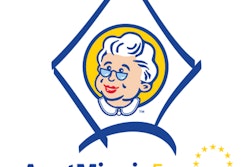Dear CT Insider,
Unexpected weight loss can be a source of great anxiety for patients, many of whom fear a cancer diagnosis will follow. In such cases, imaging can help enormously by providing referring doctors with an accurate report and by hopefully giving patients some reassurance and comfort.
Two groups of researchers have recently conducted CT studies in this area, and they presented their findings at the Annual Scientific Meeting of the U.K. Royal College of Radiologists (RCR 18). For the full details, click here.
In other news from the U.K., hospitals appear to lack the capacity to provide people experiencing chest pain with urgently needed coronary CT angiography. New figures show that more than 56,000 patients with angina missed out on scans in 2017 due to shortages of equipment and staff. Click here to read more.
In primary prostate cancer staging, fresh evidence is emerging of the benefits of combining CT with PET. Prof. Clemens Cyran, chair of the European Society for Hybrid, Molecular and Translation Imaging education committee, spoke on this topic in late October. For our report, click here.
Researchers in Edinburgh, U.K., are establishing a growing reputation for their work in cardiac CT. In a podcast, two leading investigators describe their current projects and share their thoughts on the field. Find out more here.
Last but not least, an article in the Lancet concludes that deep-learning algorithms can be a useful adjunct for identification of acute head CT findings in a trauma setting. For instance, an automated head CT scan triage system may be valuable for queue management in a busy trauma care setting, or could facilitate decision-making in remote locations, the authors noted. To learn more, click here.
This letter highlights just a few of the many articles posted in the CT Community. For the entire list, please check out the lineup below.



















